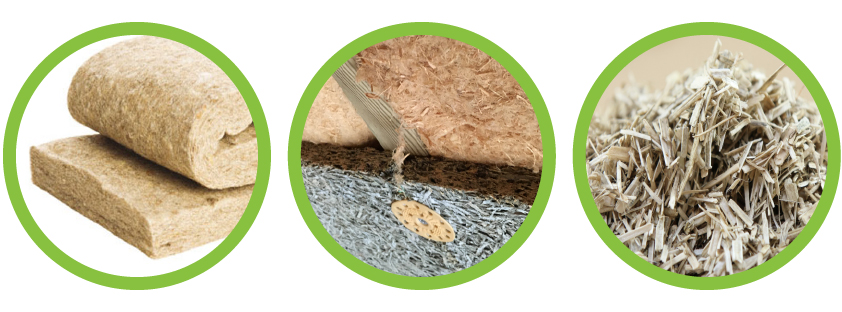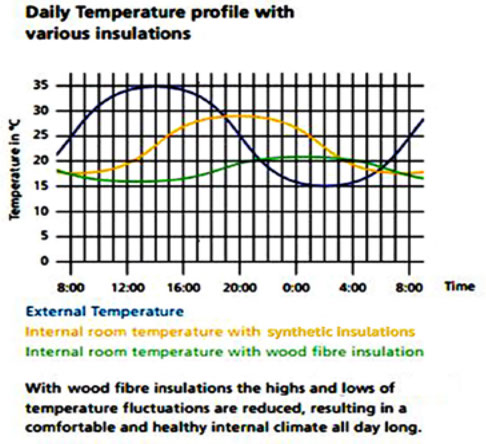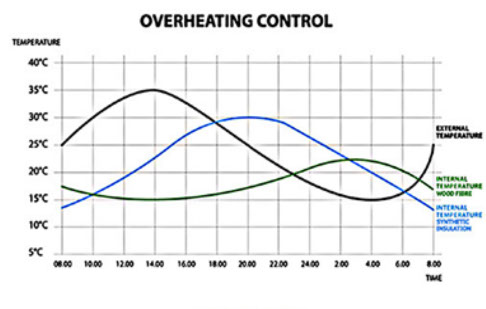
Natural fibre insulation: Decrement factor [3mins read]
Healthier, better performing, cheaper to run indoor environments.
Installing natural fibre insulation can offer home and business premises owners the potential to create healthier, more comfortable, warmer in winter and cooler in summer indoor environments than can be achieved by more commonly specified synthetic building insulations; and that are cheaper to run, and far more ecologically sustainable.
Building insulations in the UK tend to be specified primarily on the basis of U-values which describe the rate of heat transmittance through a material or combined thickness: The lower the value, the better the performance.
U-values however do not describe all thermal performance dynamics, and do not take into account for example the significant role played by material density / thermal mass, also know as decrement factor or decrement delay.
Decrement factor describes the time taken for heat to transfer through a total thickness relative to the density of a material. And in short, natural fibre materials such as wood fibre, Hemp, Jute, Flax and Sheeps wool can have a material density and decrement factor that is two, three and even four times greater than the typically specified lightweight man-made insulation products such as polyurethane, polystyrene or mineral wool.

With synthetic insulation materials that total time is typically between 4-6hrs. Which in the height of summer means by early afternoon your building is only ever going to get hotter even with the windows open.
In comparison, the decrement factor of natural fibre insulation materials can be between 12-18hrs. Meaning the suns heat in summer will never fully penetrate your building. And in winter heat will never fully escape.
https://youtu.be/_4Bs4DaVRTI
design@number39.co.uk
+447940925738


